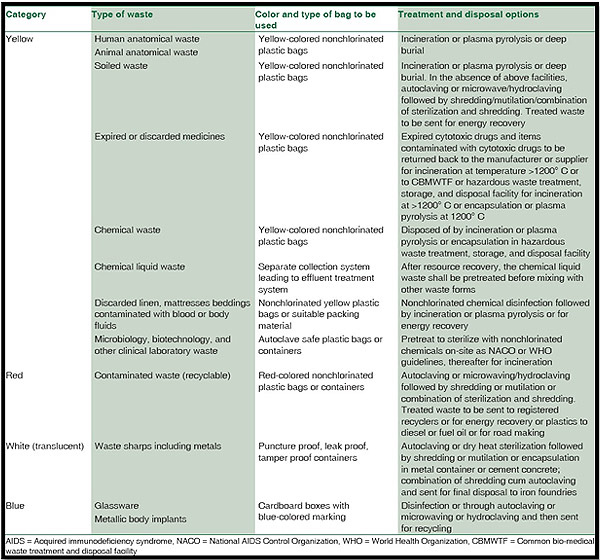The 8-Second Trick For Reclaim Waste
The 8-Second Trick For Reclaim Waste
Blog Article
Reclaim Waste - Truths
Table of ContentsSome Ideas on Reclaim Waste You Need To KnowAbout Reclaim WasteReclaim Waste Things To Know Before You BuyGetting The Reclaim Waste To WorkThe Only Guide for Reclaim Waste
Discover the kinds, occurrences, and types of fluid waste. Domestic sewer waste describes the waste and products from a domestic septic system. This type of waste is produced by people in residences, colleges, and other buildings. This only consists of sewage-disposal tanks that have a drain field. The correct management and disposal of residential sewer waste need liquid waste to be moved to a sewer treatment plant where the proper methods and tools are used to purify and deal with waste.
Industrial waste commonly consists of potential hazards, such as combustible products or a combination of fluid and solid waste products, and requires a much more sophisticated and in-depth disposal process. The disposal of commercial waste generally entails the filtering of waste before transportation to ensure risk-free and proper disposal. Hazardous waste is created from results and overflow of industrial procedures and production.
This kind of waste can not utilize the exact same sewage monitoring transportation or procedures as septic or industrial fluids. The hazardous waste administration procedure requires the assessment and screening of fluid waste before it undergoes the disposal process (liquid waste disposal melbourne). Runoff waste is the fluid waste that comes from runoff and excess stormwater in extremely populated locations or cities
Drainage waste can cause contamination and flooding otherwise taken care of effectively. Discover much more concerning sewage system cleansing and waste administration. Guaranteeing correct waste administration can protect against disasters and decrease environmental injury. Both individuals in domestic setups and specialists in industrial or manufacturing industries can take advantage of understanding the processes and laws of liquid waste monitoring.
Things about Reclaim Waste
Call PROS Providers today to discover our waste monitoring and disposal solutions and the appropriate methods to look after the liquid waste you create.
(https://www.twitch.tv/reclaimwaste1/about)Do you understand what occurs to your water when you pull the plug, flush the toilet or drain the cleaning machine? No? Well, it's worth understanding. This so-called 'wastewater' is not only a vital resource yet, after treatment, will certainly be launched to our land, rivers or the sea. Utilized water from commodes, showers, baths, kitchen area sinks, laundries and commercial processes is referred to as wastewater.

water made use of to cool down machinery or tidy plant and equipment). Stormwater, a kind of wastewater, is runoff that streams from agricultural and metropolitan locations such as roofing systems, parks, gardens, roads, courses and seamless gutters into stormwater drains, after rainfall. Stormwater streams unattended straight to neighborhood creeks or rivers, eventually reaching the ocean.
The Greatest Guide To Reclaim Waste
In Queensland, most wastewater is treated at sewer treatment plants. Wastewater is delivered from domestic or commercial websites with a system of drains and pump terminals, known as sewage reticulation, to a sewage therapy plant.
The Division of Natural Resources encourages neighborhood governments concerning managing, operating and maintaining sewage systems and treatment plants. In unsewered locations, city governments may call for householders to install individual or household sewer therapy systems to treat residential wastewater from toilets, cooking areas, restrooms and washings. The Department of Natural Resources authorizes the usage of household systems when they are verified to be efficient.
Most stormwater obtains no treatment. In some brand-new neighborhoods, therapy of some stormwater to remove clutter, sand and crushed rock has actually started making use of gross pollutant catches. Wastewater treatment occurs in four stages: Eliminates solid matter. Bigger solids, such as plastics and various Recommended Reading other objects incorrectly released to drains, are removed when wastewater is passed via displays.
Uses tiny living organisms understands as micro-organisms to damage down and eliminate remaining liquified wastes and great bits. Micro-organisms and wastes are included in the sludge.
Not known Facts About Reclaim Waste
Nutrient removal is not available at all sewage therapy plants due to the fact that it requires pricey specialized devices. Clear fluid effluent generated after treatment may still consist of disease-causing micro-organisms - liquid waste removal.

A lot of wastewater streams right into the sewage system. Under the Act, neighborhood federal governments carry out authorizations and permits for environmentally appropriate tasks (Ages) including wastewater launches that could have a local impact.
Not known Facts About Reclaim Waste
Monitoring gives factual details concerning water high quality and can confirm that permit problems are being satisfied. The info gotten via monitoring gives the basis for making water high quality decisions.
Report this page